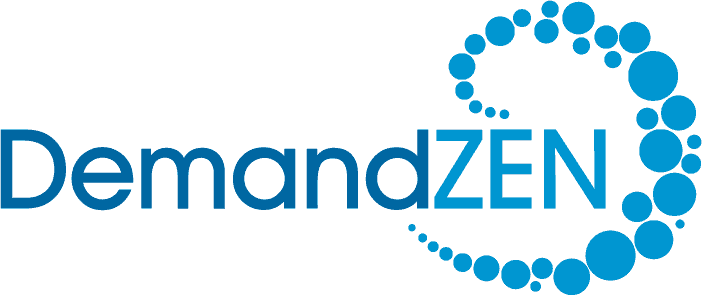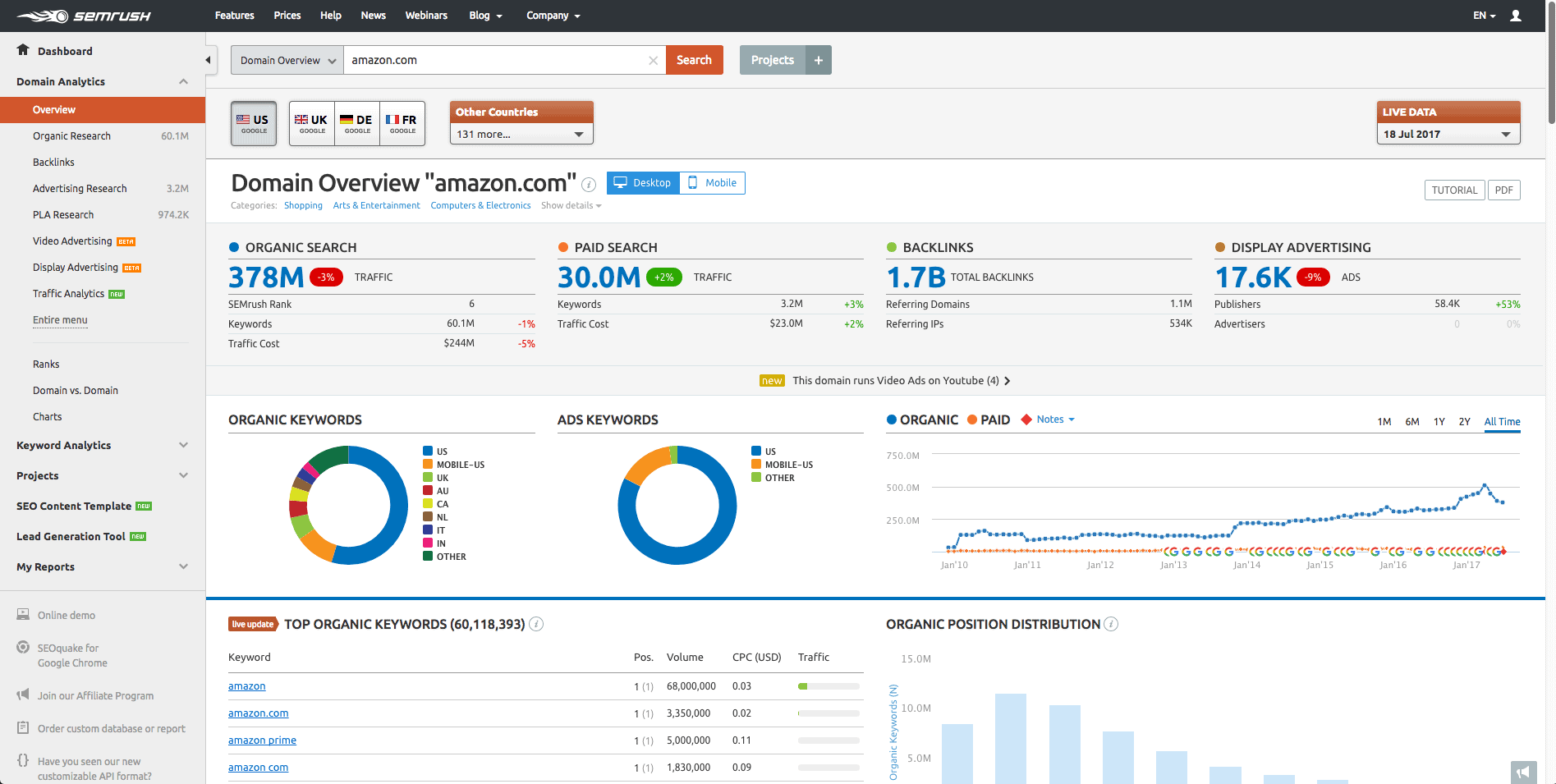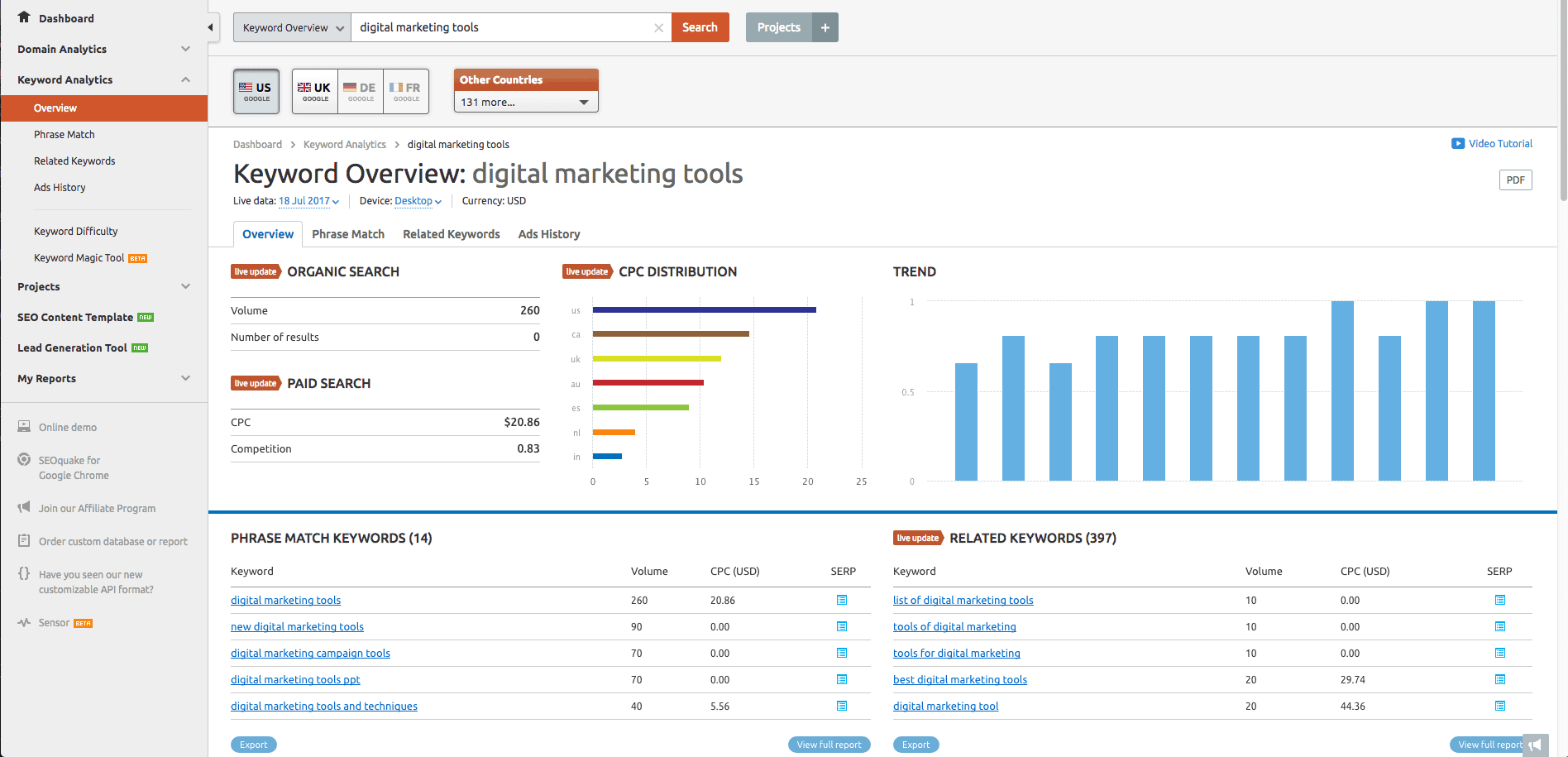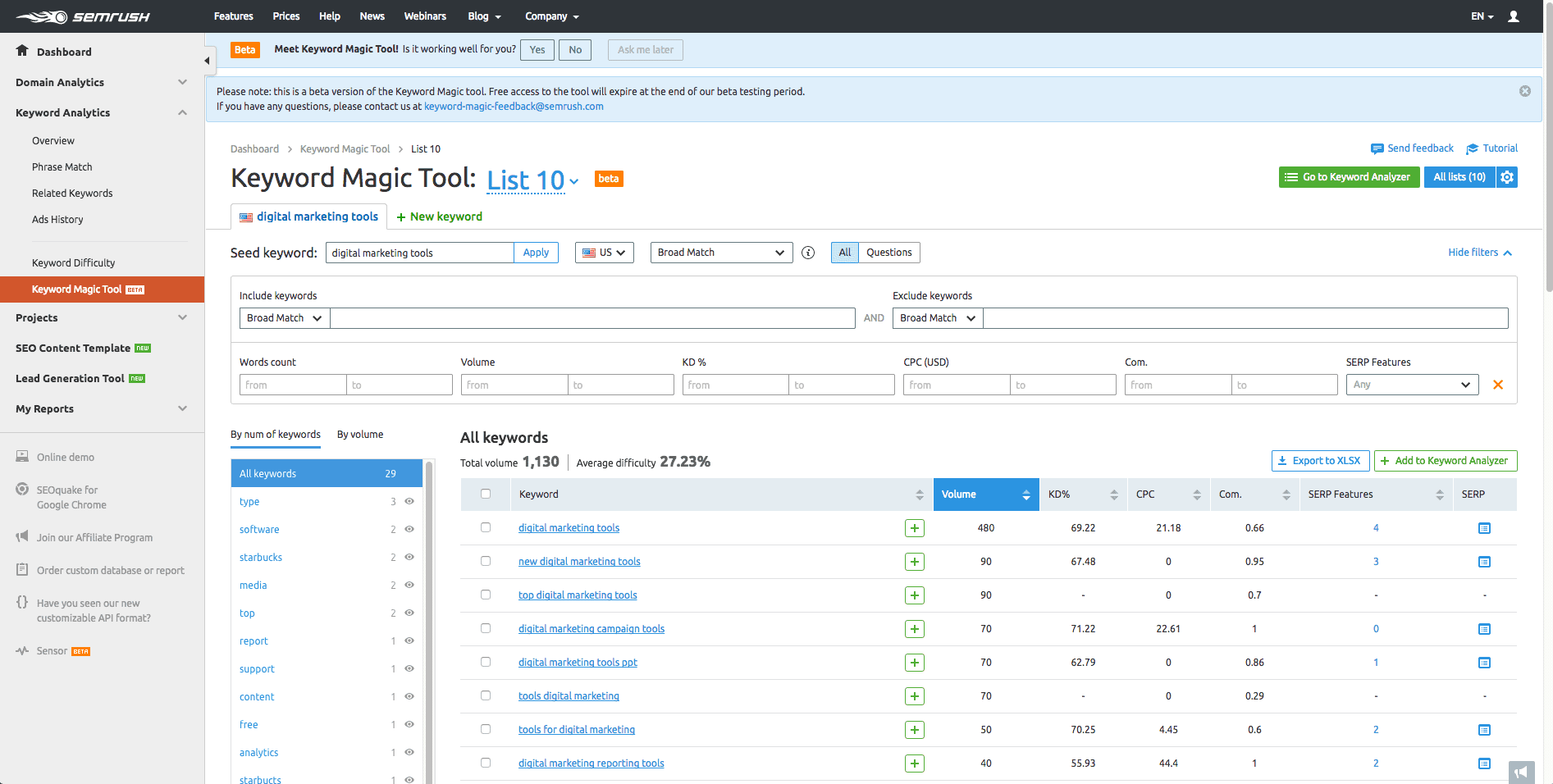DemandZEN’s Digital Marketing Tool of the Month: SEMrush

Every month, we highlight a different tool our team uses that can help businesses like yours solve problems. Because we want your team to learn about great new tools without investing a lot of time into research.
We are excited to introduce our marketing tool of the month: SEMrush. This tool allows marketing teams of all sizes to tackle the essentials of business success. From technical SEO audits to advertising research, SEMrush makes your work more efficient. And, every time we use it, we find a new feature that rocks!
Read more to learn about SEMrush, then try it out yourself with their 14 day free trial!
Dashboard
The SEMrush Dashboard includes multiple tools that lets your team research potential clients, existing clients, and respective competitors without any admin access. Information can range from a high-level snapshot to detailed advertising research. It’s a huge asset for competitive research and prospecting clients.
Domain Analytics
The Domain Analytics section of reports analyzes traffic and keyword statistics of domains and URLs. Usually, we need to be granted backend access to Google Analytics, Google Adwords, or other databases and tools to gather that information. But with SEMrush, we can identify top competitors and see organic traffic using only a domain or keyword. We can also see what keywords are driving traffic to other websites. And we are able to pinpoint the keywords, where a domain has moved up or down in the search results.
Here, you can also get a snapshot overview, complete organic research, identify backlinks, and look at advertising research. You can see exact ads and the keywords that drove clicks for each ad. Plus, you can peek at website traffic analytics without the help of Google Analytics.
Keyword Analytics
Enter a word or phrase in the search bar, and SEMrush will automatically redirect you to the keyword analytics section. Here, you’ll find insightful keyword research to build a master target list. They also provide reports that analyze competitive metrics of popular search phrases. So you can identify keyword opportunities in profitable and low-competition keywords. Whether you’re running paid campaigns or working on organic presence, this information is important for search engine ranking success.
Bonus Highlight: Keyword Magic Tool
This is brand new for SEMrush (and still in beta), but we love it! Type in a keyword or phrase, select the match type to broad or exact, and SEMrush will kickback a list of keywords. You can examine up to 1 million different variations of a keyword in a single location, while still excluding keywords that might not be relevant. Plus, you’re able to further segment by word count, volume, keyword difficulty, cost-per-click, competition level, and SERP features. Major uses include:
- Recognizing new keywords to maximize your campaigns
- Navigating grouped keywords for potential ad groups
- Exploring different niche keywords in your market
SEO Content Template
This tool is also new to SEMrush. When you’re creating content specifically for SEO initiatives, this tool is crucial. Simply enter the keyword or phrase that supports your SEO strategy. Then, SEMrush will show you your top 10 rivals on Google search and key recommendations based on those. Recommendations include: semantically related keywords, backlinks, readability, and text length. See how your competitors use target keywords and get basic recommendations based on their content.
Projects
Set up a project for each client or domain you manage to monitor the full picture of a domain’s online visibility. This tool allows you to easily perform a technical SEO audit for a website and audit backlinks, including the health of those links. The link building tool helps you increase your clients’ rankings by acquiring high-quality backlinks from authoritative domains. You can also track keyword rankings and compare your clients’ ranking to their competitors using the position tracking tool. Under projects, you can explore SEO optimization ideas, monitor client brands using the brand monitoring tool, and see social media presence.
For advertising, you’re able to search, create, and manage keywords for different campaigns and ad groups using the PPC keyword tool. And, you can create compelling ad text for search campaigns, analyze competitors’ ads, and preview search ads using the Ads builder tool.
Lastly, keep track of your organic traffic insights with that tool and optimize your content using the content tool. Track articles related to specific campaigns you’re running, perform a content audit, and compare different pieces of content. You can compare your own content to determine ideal topics or compare your content to competitors. Get a full picture of every aspect of your digital marketing initiatives all in one place.
Reports
The reports section is one of the most client-friendly reporting options we have used, especially if you whitelabel them. The custom PDF builder lets you create reports by combining research from multiple SEMrush tools. And the drag and drop functionality makes these reports easy to build, organizing a lot of information into a single deliverable document. Beyond the information available from the SEMrush tools, you can upload your own images and add text boxes. If you’re presenting a lot of information, you can add headlines and determine the page format for organization.
Our Recommendation
We are loving SEMrush! Whether you have clients or just want to up your marketing department’s game, this tool is a great asset. Get ready for thorough research, optimization galore, and increased efficiency.
Want to learn about what other tools we like? Check out our tool of the month from June.
You Might Also Enjoy These Posts
Demand Generation vs Lead Generation
Gamification Strategies: Badges in B2B Marketing
Welcome To DemandZEN
DemandZEN specializes in Account-Based Demand Generation and solving the challenges around finding, engaging and converting target accounts into real opportunities for B2B Technology and Services companies.







